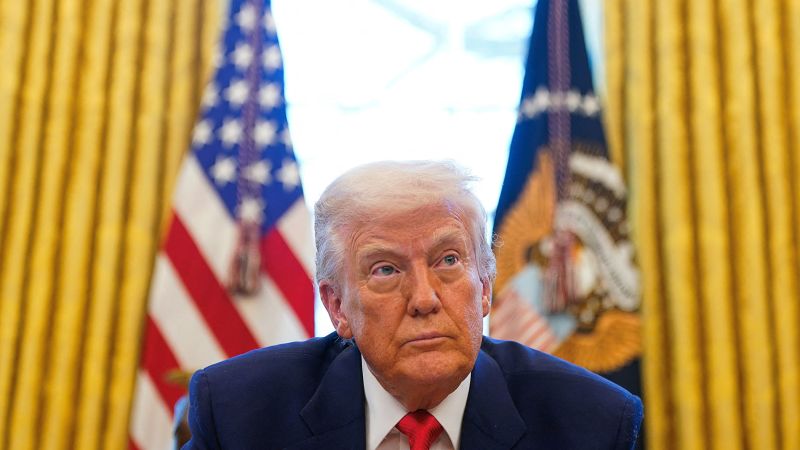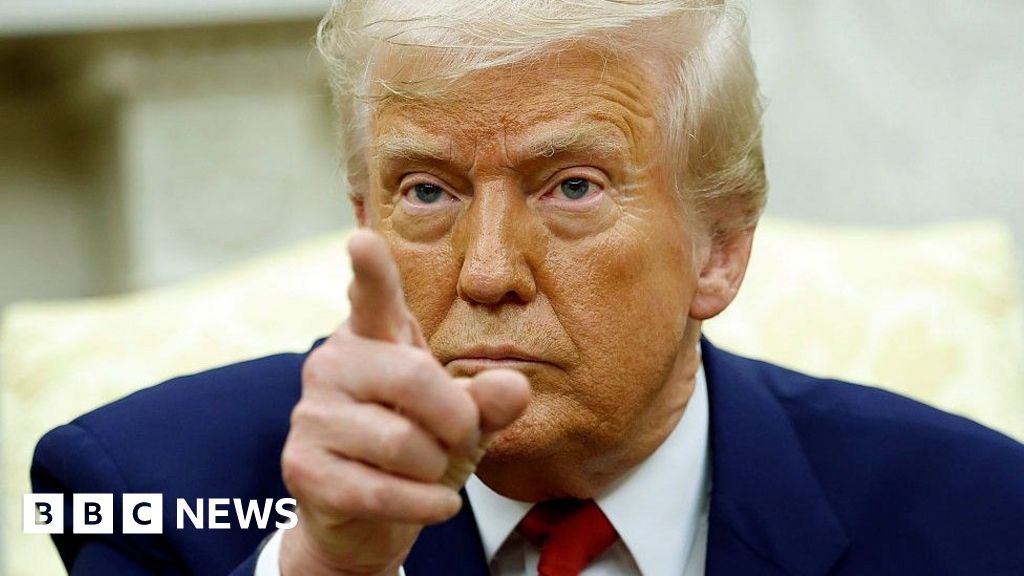Trump's Tariff Policy U-Turn: Impact on Global Markets and Trade Relations

In a series of dramatic and market-jolting maneuvers, President Donald Trump's trade policies have become a central focus of global economic discussion. Recent actions, including tariff pauses, escalations with China, and market reactions, paint a complex picture of an administration navigating economic pressures while pursuing a distinct trade agenda.
President Trump's announcement of a 90-day pause on certain tariffs sent immediate shockwaves through global markets. This decision, impacting numerous trading partners, was swiftly followed by a surge in stock prices. The S&P 500 experienced its best day since 2008, climbing almost 9.5%, and the Dow Jones Industrial Average soared by nearly 8%. This sudden reversal came after a period of significant market volatility, leading some to question the administration's economic strategy.
While offering a reprieve to many nations, President Trump intensified trade tensions with China. He raised tariffs on Chinese imports to a substantial 125%, citing a lack of respect and retaliatory measures from Beijing. This move underscores the administration's focus on China's trade practices and its commitment to reshaping the economic relationship between the two countries.
Economists and analysts have offered varied perspectives on these developments. Some suggest that the tariff pause is a strategic move to encourage trade negotiations and secure better deals for the United States. Others express concerns about the potential for long-term economic damage and the unpredictability of the administration's policies. Experts like Joe Brusuelas from RSM have indicated that while the pause may temporarily postpone economic challenges, the underlying issues could still lead to a recession.
The global community has reacted with a mix of relief and caution. European Commission President Ursula von der Leyen welcomed the tariff pause as a step toward stabilizing the global economy. However, leaders like Germany’s Friedrich Merz emphasized the need for unity and determination in defending their interests. Malaysia's Minister of Investment, Trade and Industry highlighted the significant challenges posed by the volatility of Trump's tariff policies.
U.S. businesses, particularly those reliant on international trade, face considerable uncertainty. Companies importing goods from China may need to reassess their supply chains and pricing strategies. Industries such as car manufacturing and food production are directly exposed to the impacts of tariffs, potentially affecting jobs and investment plans.
The bond market's behavior has been a key indicator of economic anxiety. Unusual patterns, such as simultaneous drops in stock and bond prices, have raised concerns about the long-term stability of the U.S. economy. President Trump acknowledged watching the bond market closely, noting its tricky nature and expressing satisfaction with its recent performance.
The political ramifications of these economic policies are significant. The upcoming elections and the potential for a recession have created a complex landscape for both Democrats and Republicans. The handling of trade issues and the resulting economic outcomes will likely play a crucial role in shaping the political future.
The shifts in tariff policies have had a direct and immediate impact on the wealth of some of the world's richest individuals. For example, Elon Musk and Jeff Bezos saw significant gains in their net worth following the tariff pause. However, these gains must be viewed in the context of broader market volatility and year-to-date losses.
China's response to the increased tariffs remains a critical factor. The country has implemented retaliatory measures, raising tariffs on U.S. goods. This tit-for-tat escalation raises concerns about a prolonged trade war and its potential consequences for global economic stability. Experts emphasize that China's vision of economic strength is closely tied to its national rejuvenation and the supremacy of its one-party system, making significant concessions unlikely.
The constant shifts in trade policy have created an environment of unpredictability, making it difficult for businesses to plan and invest. The long-term effects of these policies on U.S. economic growth, inflation, and employment remain uncertain. Economists are closely monitoring key indicators to assess the damage done and the potential for recovery.










